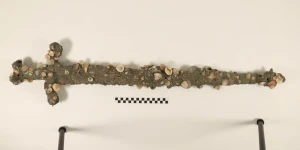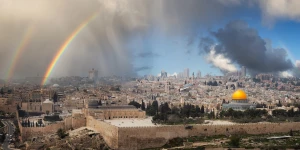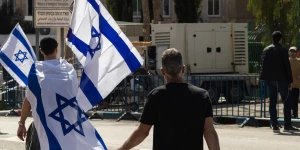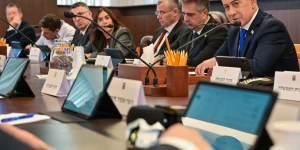A ceasefire with Iran—and the reality of our new ‘normal’
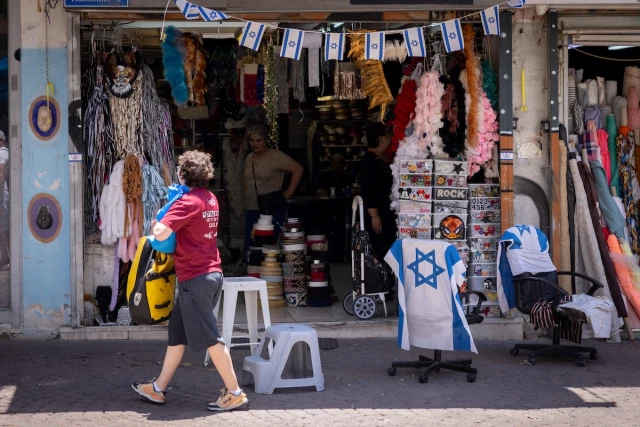
A ceasefire with Iran has gone into effect, and we are going back to normal life.
Normal… what does that even mean? The U.S. proudly calls this the "12-day war," but last I checked, we still hadn’t recovered from the last war Hamas dragged us into—the one that led us straight to the head of the snake: Iran. Or is this simply the continuation of a war that began on October 7th?
It’s been 637 days since that dark, unforgettable day. I remember the first three months after that traumatic Simchat Torah. We were in shock. The lines between threat and friend were so deeply violated that pain and mistrust divided an already broken nation even further. Just a week earlier, Palestinian contractors were planting flowers along our village street. I brought them coffee. We spoke in broken English and a blend of Hebrew and Arabic.
Then everything changed.
The New Normal
Our new normal became daily rocket fire from Hamas, Hezbollah, and the Houthis. Constant alerts of terrorist infiltrations. Regular death notifications for sons and daughters serving to protect our homeland. And still, we count the days until our hostages come home.
The shift wasn’t just national, but global. Suddenly, my son couldn’t wear his Magen David necklace in public. He couldn’t wear his Israel t-shirt while we traveled. That was our new normal too.
The Night Everything Erupted
On Thursday night, June 12th, we were jolted awake by the harrowing sound of the national alert on every phone in our home—a noise that has become a daily reality. Israel had attacked Iran in an effort to neutralize its nuclear program. We rushed to move the boys’ mattresses into the bomb shelter, knowing retaliation was imminent.
We understood the enemy wouldn’t fight fair. The IRGC would aim for crowded cities, seeking to maximize civilian casualties. This war wasn’t symmetrical. Israel's objective: dismantle nuclear threats and reduce missile stockpiles to secure peace. Iran's objective: total destruction of Israel, in pursuit of an apocalyptic prophecy from Islamic theology.
That’s how this war unfolded.
On the Ground
Israel struck nuclear facilities, military installations, and high-ranking terrorist leaders. In retaliation, Iran launched missiles at Tel Aviv, Haifa, and Be’er Sheva. Twenty-eight people were murdered in the attacks—young and old alike. Over 9,000 were forced from their homes.
Among the dead was seven-year-old Anastasia, a Ukrainian refugee in Israel for leukemia treatment. She died alongside her family in Bat Yam. And 95-year-old Yvette, a Holocaust survivor from Petah Tikva, killed when a missile struck her home.
I walked through the shattered glass and concrete of Bat Yam, where a ballistic missile had killed ten people the day before. Blood still stained the buildings three blocks from the blast site. My in-laws live just minutes from there. I had planned to visit, but after seeing the devastation, I turned back to my car—empty, depleted, nauseous. My head pounded. I whispered, “Oh God, help us.”
What Peace Feels Like
So now, after the ceasefire with Iran, we go back to "normal." But how?
We haven’t slept in two weeks. And now, even without sirens, I still can't sleep. Every noise that matches the pitch of an alert sends adrenaline through my body. Though the war is "over," my body hasn’t caught up. It turns out Maslow was wrong—spiritual survival came before emotional survival.
Today, school resumed. Beaches are full. Restaurants are bustling. That’s Israeli resilience. But there’s a different look in people’s eyes—the waitress, the baker, the moms at school pickup. A soul doesn't easily forget what death looks like. That too is our new normal.
Global Echoes and Media Failure
The new normal includes the vicious commentary on social media. People cheer for what they think is the victim. Complex regional realities are flattened into simple slogans:
“You start a war, don’t cry about it.”
“I hope you and all the other Jews get blown up.”
Worldwide, people chant “genocide in Gaza” and decry “unprovoked Israeli aggression” toward Iran. But maybe, 600+ days into this war, it’s time to zoom out—to look at Western involvement in Middle East policy. Not to point fingers, but to identify the mistakes that empower hardline regimes. The press, once a watchdog of truth, has largely abandoned research in favor of viral narratives.
Let’s review the West’s track record in Jordan, Syria, Iraq, and especially Iran. The Bush, Obama, and Biden administrations practiced a kind of diplomatic "gentle parenting": reward the good (moderates), but never punish the bad (missile stockpiling, nuclear lies, assassinations).
The Upside-Down World
And now we live in an upside-down world. White American students shout “globalize the intifada,” while Iranians across the globe thank Israel for weakening their tyrants. These same students sail half-eaten humanitarian aid half way around the world, so they can "free Palestine" but they haven’t heard of Mahsa Amini. Millions of Iranians have.
The world is reversed: The free support the oppressors. The oppressed beg for freedom. The aggressors are labeled victims. The survivors are called aggressors.
What We Missed
I know I’m not the one grading global policy. But maybe a few lessons from the frontlines are worth hearing:
Lesson one: Believe people when they tell you who they are.
When Hamas says it wants to destroy Israel, believe them. When they say they’ll do it again and again, believe that too. When Iran says it wants Israel off the map and works for two decades to build the bomb to do it—believe them.
“Israel is a dangerous, deadly cancerous tumor in the region that must be uprooted and will be uprooted” (Ayatollah Ali Khamenei, May 18, 2025)
Dear UN, EU, and world leaders: maybe you should have taken Iran at its word. Maybe Hezbollah, Hamas, and the Houthis wouldn’t have grown so powerful if Iran hadn’t been rewarded with billions in unfrozen assets. In Elvis Presley’s words: "a little less conversation, a little more action."
Don’t Put Me in a Box
You might be tempted to label me: another Zionist Israeli, Trump supporter, Palestinian-hater. But that would just be your excuse to ignore what I’m saying.
Yes, I’m grateful Trump helped Israel finish the job. But his arrogance, infantilization of heads of state and credit-hoarding didn’t go unnoticed. His diplomatic clunkiness was plain. Still, he wasn’t elected for manners. The days of Kennedy are long gone.
Back to My Boys
So where does that leave us?
Let’s come back down to eye level. My sons went back to school less than 24 hours after the ceasefire. My ears still ring with explosions. But we’re baking cakes for end-of-year parties. Life goes on.
Still, I wonder: What will "normal" look like for my boys ten years from now? Will they be fighting more wars funded by antisemitism and enabled by short-sighted Western policies? Is the new normal just a break in battle with a nuclear-armed, apocalyptic regime? Or is that just the trauma talking?
Maybe once we sleep again, once the caffeine kicks in and the sirens stay silent, we’ll begin to see the true new normal—the one Isaiah promised:
“All your children shall be taught by the Lord, and great shall be the peace of your children. In righteousness you shall be established; you shall be far from oppression, for you shall not fear; and from terror, for it shall not come near you.” (Isaiah 54:13-14)

Rebecca Kroese is a Dutch-Israeli mom of three who made aliyah four years ago and is passionate about telling hope-filled, authentic stories from Israel. As Media Director at the Fellowship of Israel Related Ministries (FIRM), she brings over a decade of experience in video production and live television. Her latest documentary captures the raw aftermath of October 7, reflecting both the heartbreak and resilience of those affected. With a deep commitment to truth and excellence, Rebecca uses storytelling to inform, inspire, and unite.



